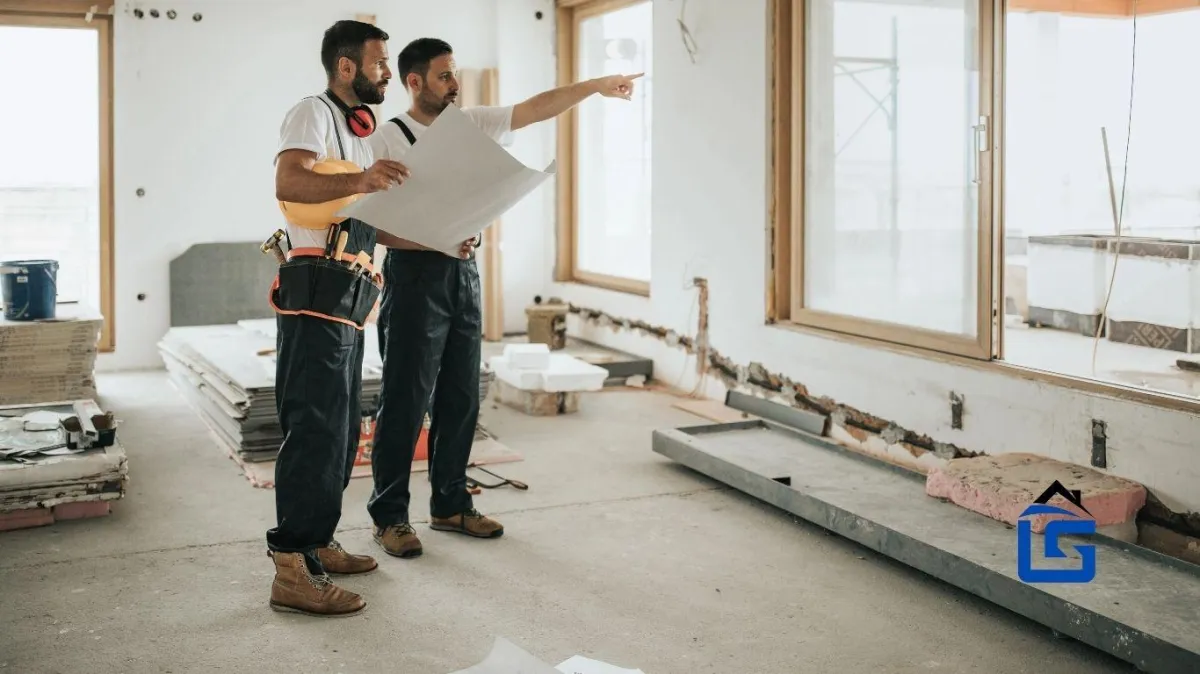
Rental Property Renovation: Smart Tips for Repairs & Upgrades
Renovating a rental house can transform your property, attract quality tenants, and boost its value. But before you start the major repairs or remodeling, careful planning is key. At Leveled MGMT, we’ve guided countless landlords through the process, ensuring smooth projects and happy tenants. Whether you’re tackling rental house major repairs, depreciation or wondering, “Can I deduct remodeling expenses for rental property?” We're here to help you prepare with confidence. Let’s walk through the essential steps to set your renovation up for success.
Why Plan Before the Hammer Swings?
Jumping into a renovation without a plan is a recipe for chaos. We start by assessing your rental’s condition. Are the walls begging for a fresh coat of paint? Is the plumbing outdated? Note every issue, from creaky floors to tired fixtures, to prioritize rental house major repairs. Understanding what needs fixing helps you decide what qualifies as a repair versus a capital improvement crucial for tax purposes like depreciation of rental house major repairs.
Next, we define your goals. Are you aiming to modernize, increase energy efficiency, or attract higher-paying tenants? Your objectives shape your budget, which should include a 10-15% buffer for surprises like faulty wiring. Check local regulations, too—some areas require permits or tenant notifications for major work. Skipping this can lead to delays or fines, especially when handling major repairs that might be capitalized.
Who’s in Charge of the Chaos?
Before starting, we clarify roles. Are you managing the project, or is a property management team like Leveled MGMT taking the lead? If you’re DIY-ing, vet contractors carefully cheap bids often mean shoddy work. For occupied rentals, we communicate early with tenants, explaining the scope and timeline of rental house major repairs. Offering rent reductions or relocation assistance keeps them happy. If the property’s vacant, notify neighbors about construction noise to avoid complaints. Clear communication ensures everyone’s on board.
What Do Tenants Really Want?
Tenants love functional, modern spaces. Kitchens and bathrooms are prime targets for major repairs or upgrades. Think new countertops, energy-efficient appliances, or fresh tiles these can justify higher rent and qualify for depreciation of rental house major repairs over time. Small changes, like updated lighting or cabinet hardware, also pack a punch without draining your wallet. Ask yourself: would I live here? If not, tweak your plan to create a space tenants will rave about.
Navigating Permits and Tax Perks
Renovations often require permits, especially for major repairs like electrical or plumbing work. We check local building codes to ensure compliance—nothing derails a project faster than a failed inspection. For tax purposes, understanding rental house major repairs depreciation is critical. Can you write off repairs on rental property? Generally, repairs like fixing a leaky roof are deductible in the year they’re made, while capital improvements, like a new roof, are capitalized and depreciated over time. Consult a tax professional to maximize deductions for remodeling expenses for rental property.
Budgeting for Brilliance
Money matters in renovations. We create a detailed budget, covering materials, labor, permits, and a contingency fund. Research local contractor rates a kitchen remodel might cost $10,000-$20,000 in a mid-sized city. To save, we shop smart for materials, like discounted tiles, while ensuring quality. Don’t forget that major repairs or improvements can affect property taxes or insurance post-renovation. A clear budget keeps you in control and answers questions like, “Are major repairs capitalized?” (Hint: Improvements often are, repairs usually aren’t.)
Timing Your Transformation
Timing is everything. We schedule renovations during low-disruption periods, like between tenants or in summer when weather cooperates. For occupied rentals, we coordinate with tenants to minimize inconvenience no one wants jackhammers at dawn. A realistic timeline, built with your contractor, accounts for delays like supply chain issues. Staging work strategically starting with high-traffic areas keeps the project on track and tenants content.
Assembling Your Dream Team
A renovation’s success hinges on your crew. We vet contractors thoroughly, checking references and past projects. For complex major repairs, hire specialists to avoid safety or code issues. Lock in contracts with clear terms payment schedules, deadlines, and scope. If this feels overwhelming, our team at Leveled MGMT can manage the process, ensuring quality without the stress. A reliable team turns your vision into reality.
Launching Your Rental’s Glow-Up
You’ve planned, budgeted, and hired the right crew now it’s go time. We do a final walkthrough to confirm details, ensure permits are filed, and protect tenant belongings. Clear communication with tenants or neighbors prevents surprises. With everything in place, your rental is ready for its transformation. Ready to create a space tenants love? Let’s make it happen with smart planning and execution.
FAQs:
Are repairs considered capital improvements?
No, repairs fix existing issues (e.g., patching a wall) and are deductible immediately. Capital improvements, like adding a new deck, enhance value and are depreciated over time.
What is the difference between tenant improvements and repairs?
Tenant improvements are custom upgrades for a specific tenant, like built-in shelving, often depreciated over the lease term. Repairs maintain the property’s condition, like fixing a broken sink.
What is the depreciable life of improvements to a rental property?
Most residential rental improvements, like new flooring, are depreciated over 27.5 years under IRS rules. Always consult a tax professional for specifics.